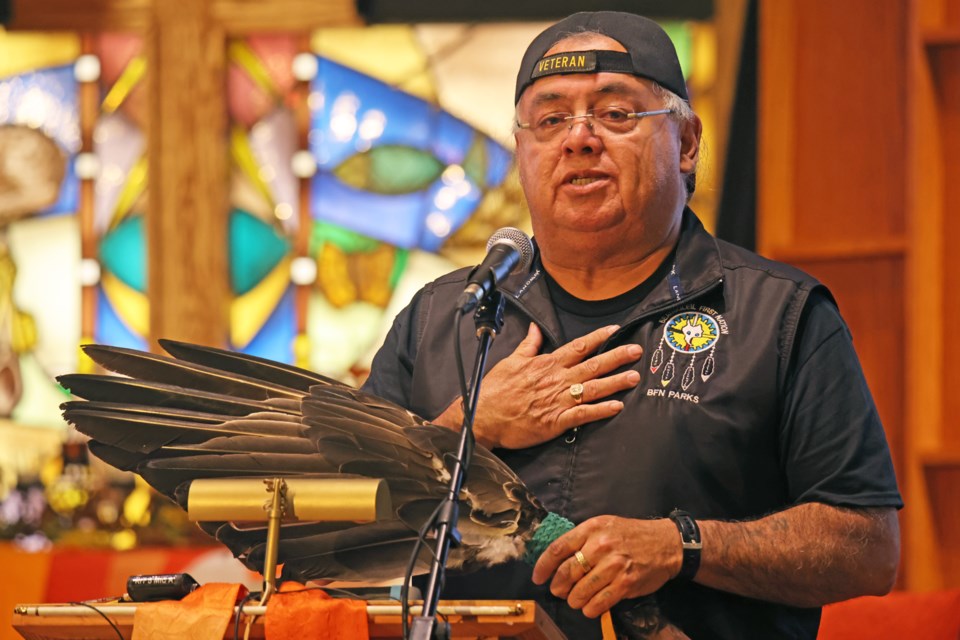Once more, the United States of America is posturing like a teenaged hellion while loudly disparaging its neighbour to the north in a show of macho-infused bravado.
Once more, the U.S.A. is threatening to annex Canada and it is promising to make it another star on Old Glory. It’s all too familiar. We’ve been here before.
The first time it happened was in 1812. First Nations on this great land watched curiously as the fledgling nations prepared to fight over land that wasn’t theirs. It was First Nations territory.
Nothing has really changed since that time. But one of the largest differences is that Canada is now dissected by treaties — treaties that spell out a relationship on the land. Many of these agreements came about after 1812 and just prior to Canada becoming a country in 1867. The treaties, we must not forget, were designed to share in and to protect the land.
This is why my First Nations ancestors decided to participate in the War of 1812. They were acting from their beliefs, their teachings, which were older than any of the two young protagonists spoiling for a fight right in their traditional territories. First Nations believed themselves to be a part of the land. They understood their original instructions as the original people: They were placed here to look after the land.
That is why when Canada called upon them to defend the country, First Nations acted not on nationalism, but out of care, love and respect for everything that, like them, grew from the land itself. They stood to protect those that crawled on Earth, those that swam in the pristine water, those that stood on four legs, and those that flew across the sky above. More than just standing with Canadians as allies, the ancestors stood for their teachings, their belief system. All of this was worth protecting.
And even as those same teachings became outlawed, forbidden, on the very land they chose to protect, First Nations people volunteered in great numbers, at a ratio larger than any ethnicity in Canada, to once more stand up and fight for this land in the great World Wars and every conflict in between. Even today, we have young First Nations men and women serving to protect the land. Still today, many of them are acting on their original instructions, their original teachings, to protect the land.
Canada is a treaty partner — a treaty partner that, to put it mildly, has faltered in living up to the obligations contained in these pacts.
When these arrangements were first being made, First Nations were on an equal footing socially and economically. First Nations were part of the world economy. We were equal partners in the fur trade, a worldwide endeavour.
Once more, as they have asked since 1812, Canada will request assistance in protecting the land from the Americans if it is necessary to do so. Once more, we will most likely answer the call to do so. Once more, it will not be out of an act of nationalism, a love of country; it will be to live up to the original teachings, the original instructions, to look after the land.
But Canada could do so much to secure the participation of First Nations simply by living up to its end of its treaties with us.
For example, during the tariff war that has been declared on Canada by the United States, Canada could extend a hand to First Nations simply by including them in the creation of a new global economy, one that would once again include the first peoples of this land.
If you want things manufactured in Canada, why not have that manufacturing take place in First Nations territory? Together, we could produce everything from shower curtains to auto parts and even AI technology while providing jobs and a living wage to First Nations people. Together, we could finally benefit from a sharing of the resources that our lands produce.
By extending a reconciliatory hand in this manner, Canada could ensure the allyship it coveted and secured in the early days of its creation would be there when it needed to call upon our assistance. Once more, we could assist in protecting our lands from your quarrelsome cousin.
We could learn so much from our shared experience.
Jeff Monague is a former chief of Beausoleil First Nation on Christian Island, former treaty research director with the Anishnabek (Union of Ontario Indians), and veteran of the Canadian Forces. Monague, who taught the Ojibwe language with the Simcoe County District School Board and Georgian College, is currently the manager of Springwater Provincial Park.
